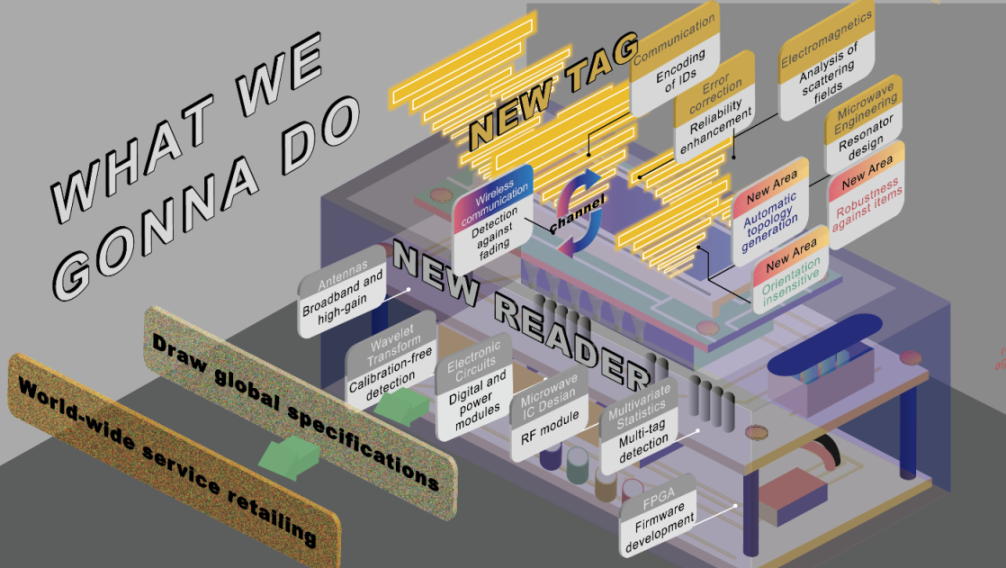Scope

This is a project of four years’ duration. In the first three years, we organize the research issues into four subjects, including the design of chipless tags, chipless RFID readers, reader signal processing, and wireless propagation channel. We propose novel and original techniques in terms of hardware and software architecture, improving the capacity and robustness of chipless RFID. The hardware design includes compact 25-bit chipless tags that show high reliability in library stacks, dual-port reader antennas that exhibit low-profile, broadband, and directed features with reduced mutual coupling, and reader architecture that integrates an RF module, a digital module, and a power module into a system. The proposed software algorithms include calibration-free and anti-collision signal processing using time-frequency analysis. In the fourth year, the four subjects converge, and all the subsystems are integrated. We will attach chipless tags to 350,000 library collections at National Taipei University of Technology Library, managing physical resources using a chipless RFID reader. The proposed technique is also developed into applications of sensor networks, localization, authentication and security, health, and food safety, providing an extremely low-cost solution for Internet of Things (IoT).


